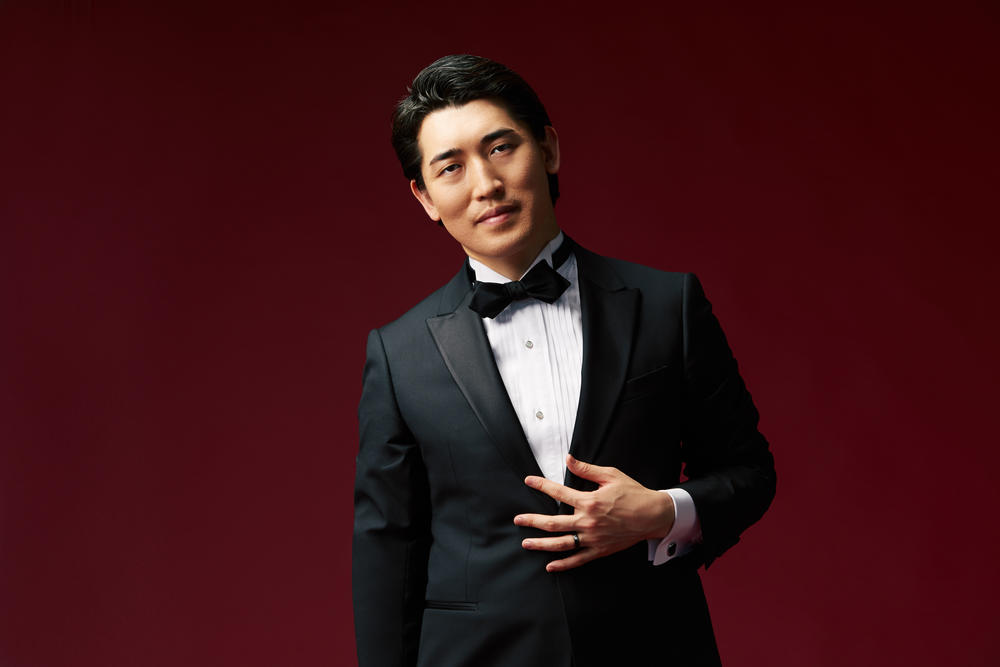Section Branding
Header Content
'We Immediately Clicked': Meet New Savannah Philharmonic Conductor Keitaro Harada
Primary Content
In July, the Savannah Philharmonic announced its new, second-ever conductor. Keitaro Harada, or Kei, as he likes to be called, grew up in Tokyo, but he’s no stranger to Georgia: he studied at Mercer University and was assistant conductor of the late Macon Symphony.
More recently, Harada wrapped up four years as associate conductor of the Cincinnati Symphony. He takes the stage Sept. 14 as the Savannah Philharmonic's music director designate. He spoke with GPB’s Sarah Zaslaw about music, love, community and batons.
Sarah Zaslaw interviews Keitaro "Kei" Harada (full interview as heard on GPB's Nightcap)
-
Interview Highlights
On meeting the orchestra
Whenever I guest conduct any orchestra for the first time it’s like a blind date. You’re just judging each other, right from the moment I walk on stage for the first rehearsal: they’re checking you out, and I’m checking them out, too. With the Savannah Philharmonic, it was definitely love at first sight. We immediately clicked from the first rehearsal. I think we really knew through the rehearsals that there was something special.
On meeting his wife
We were introduced by a mutual friend but we actually started talking over Instagram. After 10 days of talking on Instagram I flew her [from Tokyo] to Cincinnati, and within 24 hours we decided, “We should just get married.”
On his love of musicals
I saw West Side Story as a child and I was just fascinated by the entire thing, not just the music but also the theatrical aspect, and I thought this is what I really wanted to do. I came to Michigan to attend Interlochen Arts Academy to learn how to be a doubler, trying to play different instruments to be a pit musician. I wish I was on stage but I’m a horrible singer and a poor dancer, so that was not going to be my career.
On a conductor’s most important attribute
Curiosity. We spend so much time in front of a score in our own study space and we continuously have conversations with pieces [most of whose composers happen] to not be alive, so you can’t just instant message them to get answers. I love reading biographies, trying to figure out where was Beethoven when he wrote this piece, what was he eating, who was around him, or who was this composer in love with when this melody was created. It may not be the exact answer, but it gives some influence to what they decided to put in ink. The more curious I am, the more creative I become when it comes to musicmaking.
On concert culture here and in Japan
The biggest difference is that in Japan no one stands to applaud. When I attend a concert in Japan, I have the tendency to stand up and applaud if the performance was really wonderful, but I stick out like a sore thumb because no one else around me does. That’s just not what they do.
On baton material
I’ve seen episodes where the conductor poked his eyes. There are so many different kinds of materials for batons, from the very cheap ones made out of wood to the very expensive ones, hundreds of dollars, made out of titanium or materials that don’t break. I was using one of those $50-60 ones, but the moment that I saw someone injure himself on stage and start bleeding in front of the orchestra, I thought, never again am I going to use my fiberglass baton. Because if it hits something I need it to break. So now I use this baton that’s like $6 on Amazon that’s made of wood.
On words to live by
This is a quote from my wife’s grandfather, who’s a famous fashion designer in Japan. He said, in English it directly translates into, “Be the person who you aspire to be,” or “Be the person that you need to be.” When you’re in the arts industry, you have other people that inspire you, other people who challenge you, other people you might be jealous of. The tendency naturally is to compare yourself with others. But that’s not the important thing in life, and especially as an artist, it’s becoming who you must be, knowing that and then working diligently every day to hone your craft to be that person, unaffected by others. So: “Be the person that you want to be.” It speaks to me a lot.
-
Video: Keitaro Harada conducts the Tokyo Philharmonic
https://www.youtube.com/watch?v=0QWy5MRMs4g&feature=youtu.be


